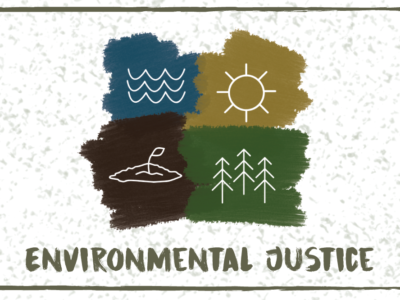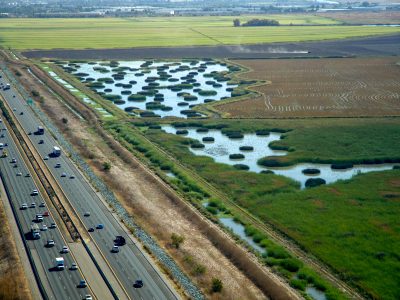Region: National
Carrying the Freight
Decarbonizing trucking comes with some unique challenges.
A quarter of carbon emissions from transportation come from heavy-duty trucks. They are also disproportionate sources of air pollution. Addressing these emissions will be challenging and will require a multi-prong strategy. For distances under a few hundred miles, electrification offers the most promising solution. California and fourteen other states plan to make 30% of new …
Continue reading ” Carrying the Freight”
CONTINUE READINGMajor Questions About Today’s Big Climate Case
Here’s what you need to know about today’s oral argument in W. Va. v. EPA
The Supreme Court is hearing oral argument this morning in West Virginia v. EPA. The case is a challenge by the coal industry and coal states to EPA’s power to limit carbon emissions by power plants. Here’s what to look for today. Q: What is the case about? A: In practical terms, the question is what EPA …
Continue reading “Major Questions About Today’s Big Climate Case”
CONTINUE READINGAir Quality as Environmental Justice
National air quality standards may be among the most powerful levers for environmental justice.
The environmental justice movement began with a focus on neighborhood struggles against toxic waste facilities and other local pollution sources. The EJ focus now includes other measures to ensure that vulnerable communities get the benefit of climate regulations. The most powerful tool for assisting those communities, however, may be the National Ambient Air Quality Standards …
Continue reading “Air Quality as Environmental Justice”
CONTINUE READINGJustice 40 and Identifying Disadvantaged Communities
Why race is an important factor to consider
Last Friday, the White House Council on Environmental Quality released its long-awaited Climate and Economic Justice Screening Tool. The screening tool will guide the Biden Administration’s implementation of its Justice40 Initiative that directs that 40 percent of certain federal investment programs benefit disadvantaged communities. However, like may legal scholars predicted and the White House foreshadowed, …
Continue reading “Justice 40 and Identifying Disadvantaged Communities”
CONTINUE READINGWays of Price Making, Inflation, and Energy Price Shocks
This post was originally published on the Law and Political Economy blog as part of a symposium on inflation. Energy prices have been much in the news over the past several months, occupying a prominent place in mainstream discussions of inflation. Higher prices for oil, natural gas, coal, and electricity are all pushing up inflation across …
Continue reading “Ways of Price Making, Inflation, and Energy Price Shocks”
CONTINUE READINGMary Nichols’ new role at the Emmett Institute
This post is co-authored by Daniel Melling, communications manager at the Emmett Institute The New York Times reported last week that the Biden administration is preparing to restore California’s waiver to set greenhouse gas auto emissions standards stricter than the federal government’s rules. It’s the latest episode in a regulatory saga stretching back to the …
Continue reading “Mary Nichols’ new role at the Emmett Institute”
CONTINUE READINGCan we govern large-scale green infrastructure for multiple water benefits?
by Lidia Cano Pecharroman, Christopher Williams, Nell Green Nylen, and Michael Kiparsky
Green infrastructure is increasingly emphasized as an alternative, novel path for water infrastructure. The possibilities are intriguing: Can we transition from a landscape dominated by siloed grey infrastructure (think concrete and steel, constructed for one or a few key outcomes like water supply or flood control) to one that centers natural processes in water infrastructure …
Continue reading “Can we govern large-scale green infrastructure for multiple water benefits?”
CONTINUE READINGPainful Tradeoffs
How do we manage the local environmental impacts of the energy transition?
Just before leaving office, the Trump Administration approved a huge lithium mine in Thacker Pass, Nevada. The mine could help supply the U.S. battery industry for decades. It might also impact habitat of the endangered grouse sage, deplete groundwater levels, and threaten the survival of an endangered trout. Local residents have sued to block the …
Continue reading “Painful Tradeoffs”
CONTINUE READINGThe 2022 Elections and State Environmental Policies
Governors are pivotal players in state regulatory policies
The formal powers of state governors vary from state to state. Like Presidents, however, they have been busy the past few decades centralizing control of their bureaucracies. That makes them key players in the environment and energy domain. This year, some key governors’ mansions are up for grabs. Here’s a summary of the current state …
Continue reading “The 2022 Elections and State Environmental Policies”
CONTINUE READINGBreaking Up with Fossil Fuels
It’s not us. It’s you.
WORLD: Thanks for the card. . . . But I think we need to talk. FOSSIL FUEL INDUSTRY: About what? W: About us. FFI: About us?? Can’t it wait until some other time? This is Valentine’s Day, and I’ve made plans for us. Big plans. W: The pandemic has given me a lot of time …
Continue reading “Breaking Up with Fossil Fuels”
CONTINUE READING













